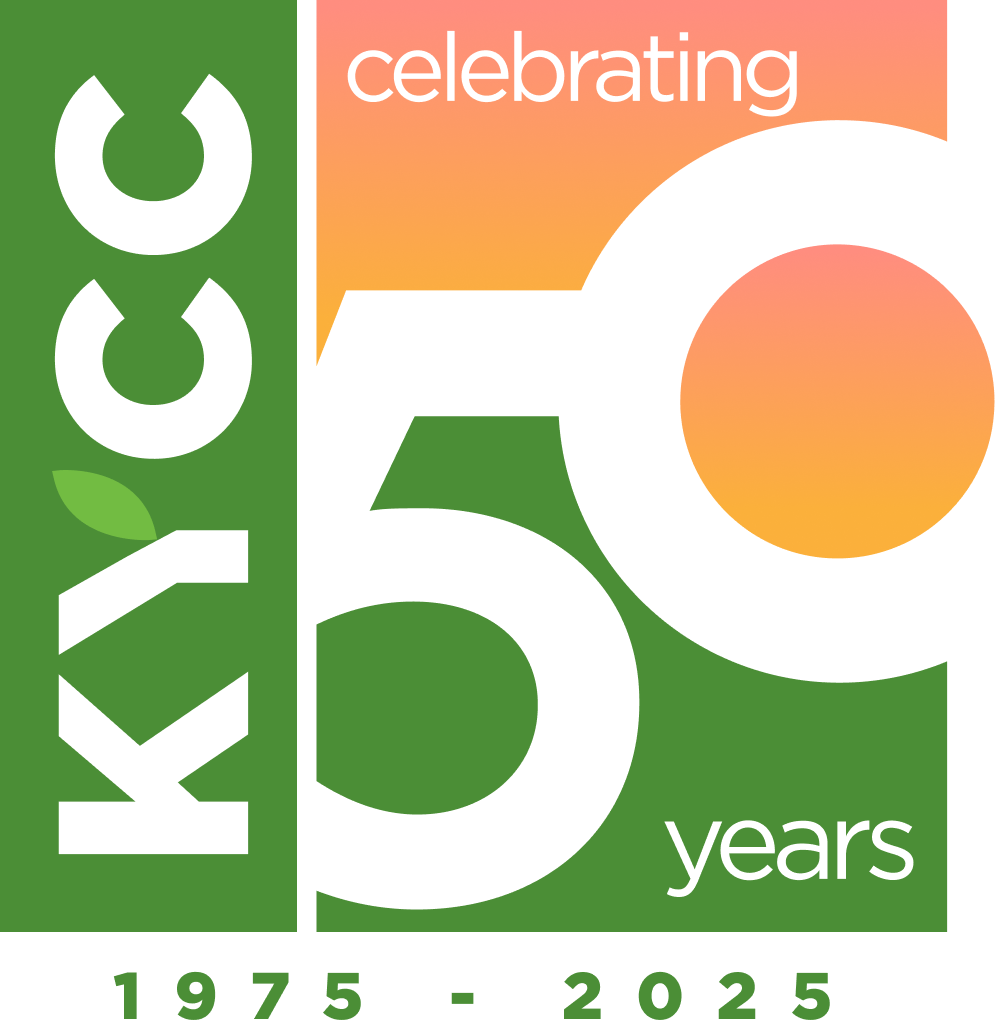April 1, 2014
Real Life Skills
In a brand new classroom at KYCC’s Menlo Family Center, a group of high school students watch a guest speaker as she holds up an insulated cooler. “This isn’t my lunch,” Lori White of Faith in Girls, tells the students. “These are the pills that I need to take every day to survive.” White proceeds to take out more than thirty vials of AIDS medication to display in a long line at the front of the room.
White spoke about safe sex practices and healthy relationships to Advancing Youth through Community Empowerment (AYCE), a new after-school program at KYCC for high school students from the Koreatown and Pico-Union neighborhoods. The weekly program discusses real-life issues such as drug and alcohol use, relationships and family issues, while also educating the youth on their future—college, jobs and finances.
“We want to see AYCE youth succeed academically and in the job force,” says Carlos De Santiago, AYCE Co-Facilitator. “We know that our youth will have different goals and aspirations, but we hope that by exposing them to new ideas and challenges, they will have the necessary tools to overcome the obstacles—poverty, gangs, lack of structure—that they face.”
AYCE Co-Facilitators Sarah Lerman and De Santiago saw the need for a high school program in and around KYCC’s Menlo Family Apartments, which houses previously homeless families, children with mental illness, transitional aged youth, and low-income families. Lerman is the Middle School Instructor and De Santiago is the Gang Prevention and Youth Development
(GRYD) Case Manager at the Menlo Family Center, located on the first floor of the facility.
Elementary and middle school programs at the center are underway and flourishing, but there wasn’t an outlet for the high school youth.
“We literally went door-to-door to promote this program,” Lerman explains. “We had to speak to each family about this opportunity to engage the students and get them involved in their community.”
Over a dozen students enrolled in AYCE. The majority reside in the apartment building, while others come from GRYD. All of the participants are African American or Latino. With each successive week, enrollment has been rising as new students trickle in.
During the AYCE meeting, when Ms. White asked how many students in the room knew someone who was HIV positive, a flurry of hands went up. When she asked how many of those knew someone with AIDS, several hands remained raised. But some of the students were uncertain about prevention methods and transmission, highlighting the critical need for such a program.
“These youth are coming out of homelessness,” Lerman explains. “A lot of them have been in foster care or have witnessed domestic violence. This lack of stability in their living situations has affected their relationships and education compared to other students their age.”
AYCE will bring in monthly guest speakers, who will expose them to different careers and life skills. An upcoming trip will be a tour of the USC campus. “I want them to experience what college life is like,” Lerman says. “Most of them have never been on a college campus.”
There will be peer leadership skills trainings with two other KYCC high school programs, Tutoring, Enrichment and Mentoring (T.E.A.M.) and Leaders in Enrichment & Academic Development (LEAD). In a service learning component, AYCE students will volunteer in KYCC’s Elementary Tutorial Program (ETP) and participate in community cleanups with KYCC’s Environmental Services.
“With AYCE, we hope to continue the mission of providing quality programming for KYCC youth from elementary school to high school,” says De Santiago. “We really want to build on the success that we’re finding in our younger programs and create real opportunities and lasting life skills for the older students.”

